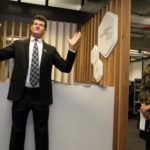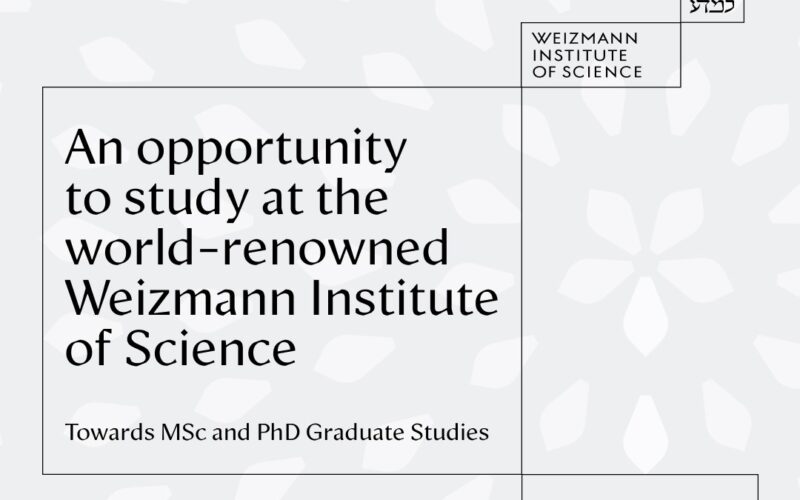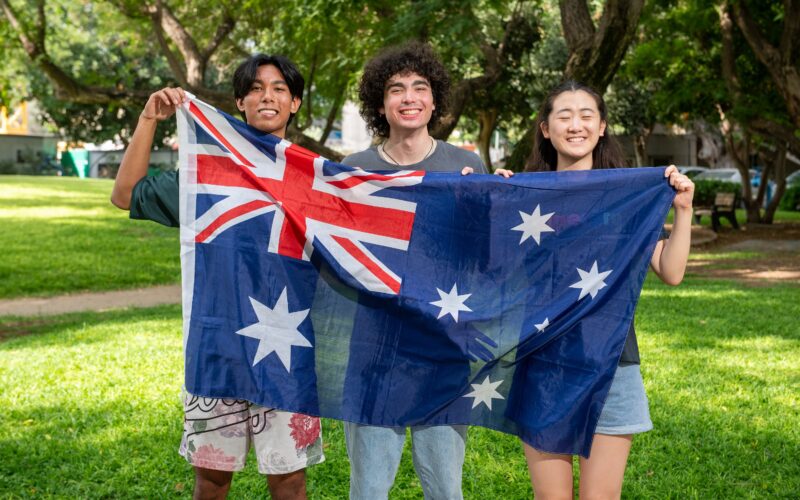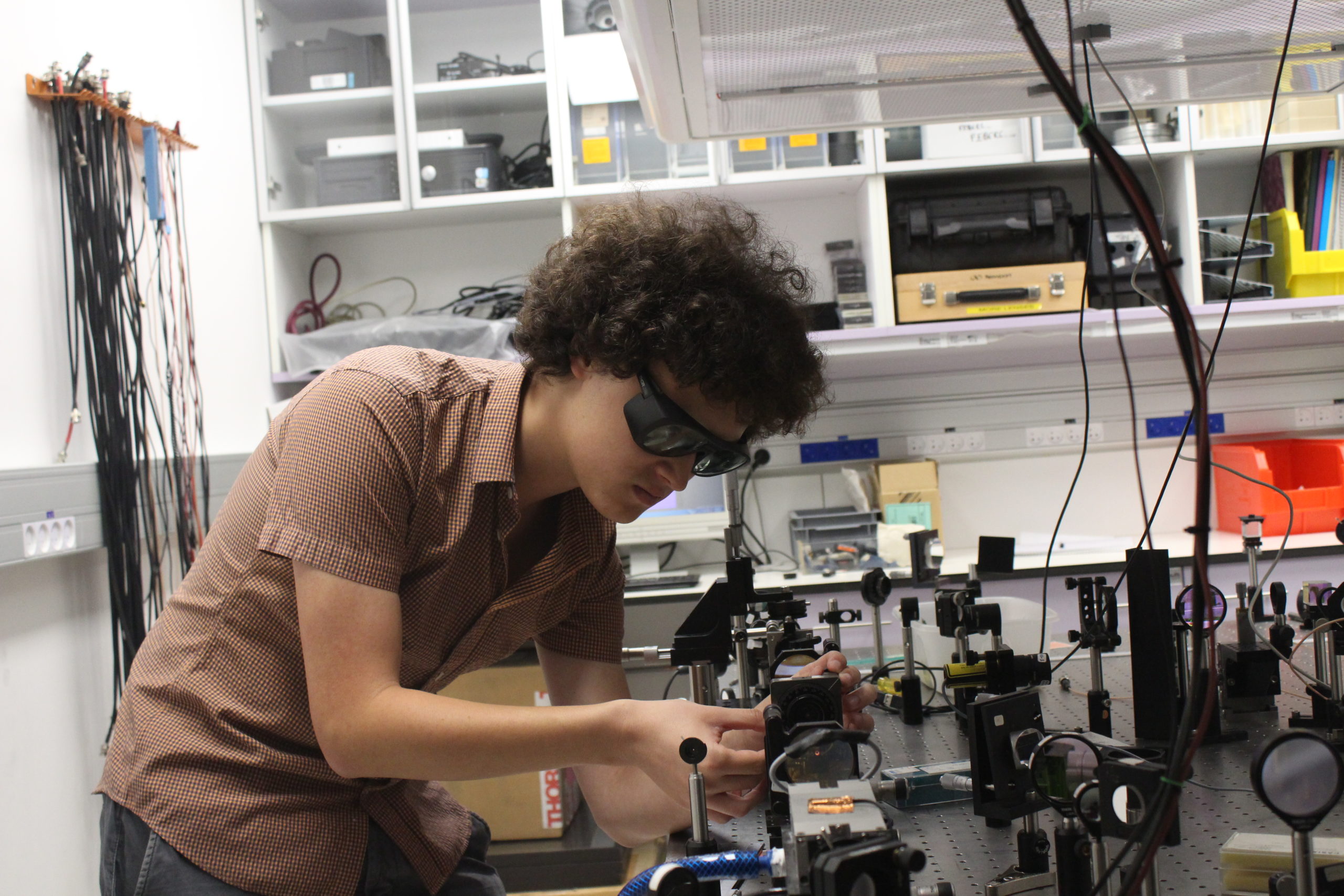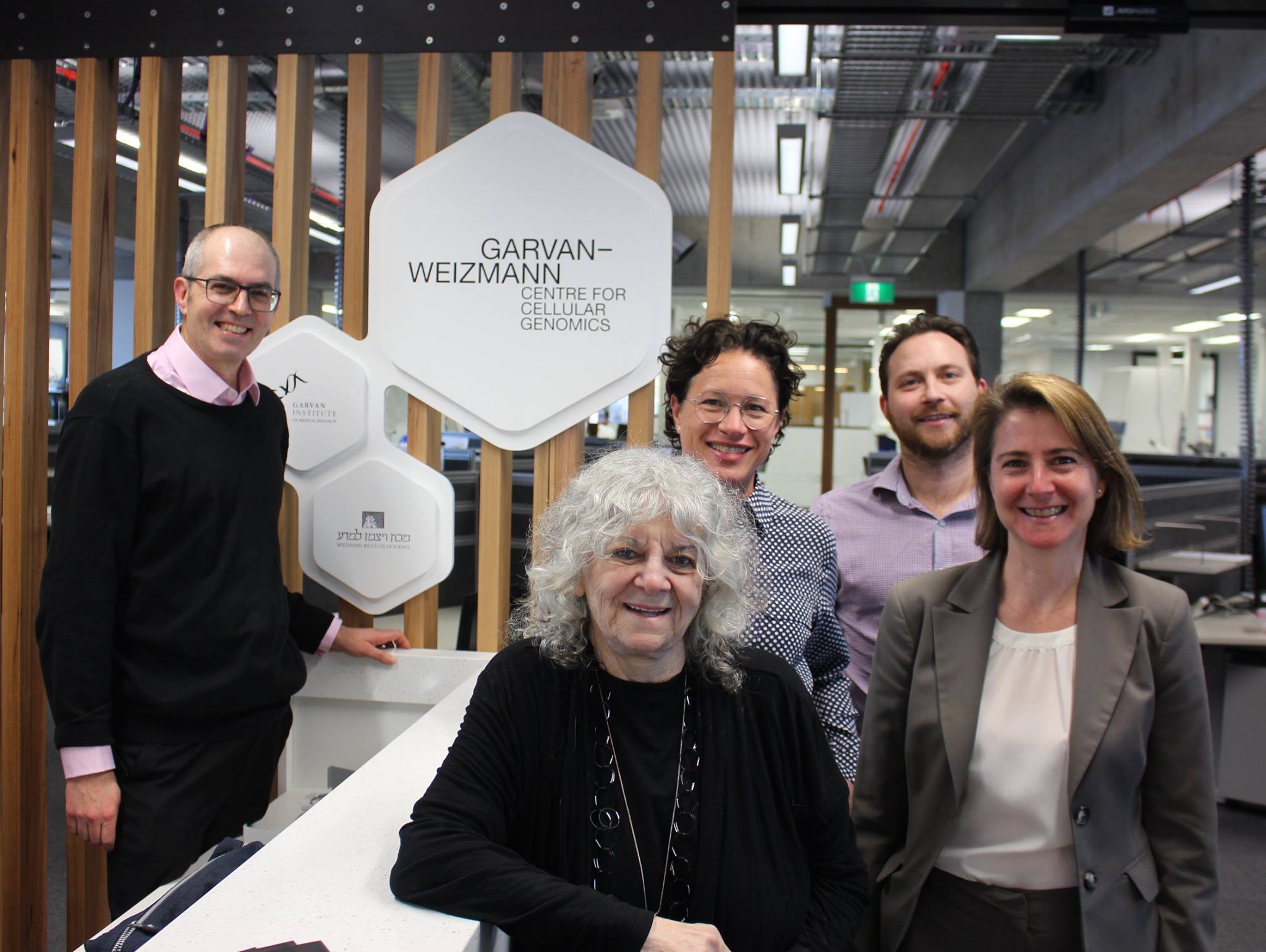
August 5, 2017
She was born into poverty yet Professor Ada Yonath of the Weizmann Institute of Science, became one of four women to be awarded the Nobel Prize for Chemistry and the first woman in the Middle East to receive it in Science. How? Like Einstein, with “curiosity and passion”.
At a special event for aspiring young researchers, recently held at Sydney’s Garvan Institute of Medical Research, Professor Yonath said that these two emotions have always been her driving force, but was quick to modestly assert she was “no Einstein” – although that could be debateable.
From falling two floors and severely breaking her arm at aged five, whilst attempting to measure the balcony height of her four-roomed, Jerusalem apartment, shared by three families; to success many decades later for prize-winning collaborative work to determine the three dimensional structure of the ribosome – the cellular machinery that creates proteins and is the target of antibiotics – Professor Yonath’s life is a book still to be written.
On this, her third visit to Sydney, Professor Yonath – in what she called her “Climbing the Everest beyond the Everest” lecture – shared her story with 40 senior high school students from Moriah College, Willoughby Girls, Brigidine College, Loreto Kirribilli and SCEGGS Darlinghurst.
Earlier that day she presented to Garvan researchers a chemical account of her ribosome crystallography research, elaborating in more detail about how her team’s work could ultimately help tackle antibiotic resistance.
“Climbing the Everest beyond the Everest is obviously a metaphor as I unfortunately never did it, but it illustrates that achieving results is not easy and unpredictable. It is curiosity and passion that has brought me to where I am now, while enjoying the hard work,” she told the group of up and coming researchers.
Her “climbing” curiosity, she explained, started on that second floor balcony of her home, her first place of experimentation.
“I had a small corner of the balcony to use and the first question I asked was: What is the distance from the floor to the ceiling of the balcony?” Professor Yonath said.
“In order to find out I put together all the furniture I could to climb to the top to measure, but I never made it, falling two floors and breaking my arm instead. I never found out what the measurements were, although 60 years later I returned to the apartment to measure but they had changed the structure. So to this day, I still do not know!” she laughed.
She spent half a year with her arm in a caste but it was the start of a life seeped in curiosity, trial, error, sweat, laughter, tears, achievement and ultimately honour.
The push to continue her life of experimentation and not fall into the traditional roles women played at the time, Professor Yonath attributed to her Kindergarten teacher – who lived and worked in the same building as Ada’s home; so she knew Ada well.
“When I was going to finish Kindergarten, my teacher said I should study a bit more and could handle mathematics, so she convinced my parents that since the way to the modern schools was dangerous, I should stay on longer in the Kindergarten, and she will teach me and a few other kids, so I could go to the second grade of the normal school,” Professor Yonath said.
It was the start of a brilliant scientific career, which eventually became focussed on the biosynthesis of proteins.
“When I was a young scientist I thought that translation of the instructions embedded in the genetic code into proteins, is one of the most interesting fundamental life processes. Therefore I focused on it,” she said.
“Proteins perform nearly all of the essential functions in the lives of all organisms and enables us to perform many functions required for life such as breathing, and functions that respond to pressure, like heat and cold or dust in the eye.”
Ribosomes, she told the audience, whilst running a short explanatory video, are the “factories” and production houses of proteins, continuously recoding genetic information.
“The ribosomes act continuously, forming 5-40 peptide bonds a second, hardly making a mistake and because of their fundamental role, many antibiotics target them, with over 40% clinically used halting protein production mainly by paralysing the ribosome,” she said.
To illustrate how this occurs Professor Yonath played a second video.
Her journey to the Nobel Prize took 20 years with a key research challenge being how to crystallise ribosomes, which she discovered deteriorated quickly. It was another serious accident, when a fall off her bike resulted in brain concussion and two operations, that Professor Yonath had her “luck” as she called it.
“While recovering from this concussion and two surgeries I read less serious articles, one article in a travel magazine about a delegation that had gone to the North Pole to reveal how the sleeping bears live and what happens to their metabolism whilst their winter sleep,” she said.
“During the bears’ winter sleep they found that their ribosomes are orderly packed on the inner side of their cell membranes, indicating these ribosomes can maintain their integrity and functional activity for months, despite their natural tendency to deteriorate within days.
“In my opinion this showed that stress induces periodic dense packing of ribosomes in order to avoid their deterioration. Therefore I used ribosomes of bacteria that lives under stress, namely the bacteria living in the Dead Sea, where nothing much else can live owing to the high salinity and high temperature, or those that exist in nuclear facilities. This approach worked!” said Professor Yonath.
Professor Yonath’s team created several “beautiful” crystals over six years, and these became suitable for measuring in synchrotrons. These produced a ground breaking result, lasted for less than 1% of the duration required for collecting a complete data set. This was the finding that led to the feeling of reaching the summit of what they considered the Everest, only to find out that climbing a taller and more difficult Everest was still required.
Consequently a revolutionary method, that most of her peers had considered unachievable, was introduced by Professor Yonath, which led to the survival of the ribosome crystals for durations allowing measurements, namely to useful experimental conditions, a technique that was readily used worldwide and resulted in over 87,000 crystal structures recorded.
This research ultimately helped tackle one of the biggest antibiotic challenges today – antibiotic resistance. Resistance represents a serious global crisis, with the Review on Antimicrobial Resistance estimating that by 2050, infections untreatable with antibiotics will kill 10 million people a year worldwide.
Professor Yonath said that although many pharmaceutical companies have stopped searching for new antibiotics because of the expectation of resistance, she believes there is a solution and the research must continue. In her case, Ada’s lab has identified the basis for a new types of antibiotics.
“Until recently almost all available crystal structures were of pathogen models which are suitable to illuminate common modes of antibiotic action, but do not explain species-specific pathogens. Consequently, we are now determining the structures of ribosomes from these pathogenic bacteria,” she said.
“These studies showed that in principal it is possible to increase antibiotics selectivity so more discriminating antibiotics can be designed and novel antibiotic binding sites can be found.”
Overall the nature of Professor Yonath and her team’s work is highly complex but since her fall from a balcony seven decades ago, her achievements, as a result of her unending curiosity, are of Everest proportions.
To the young researchers, her concluding message was simple: “Don’t ask advice, follow what you love.”
Watch videos about Professor Yonath below:
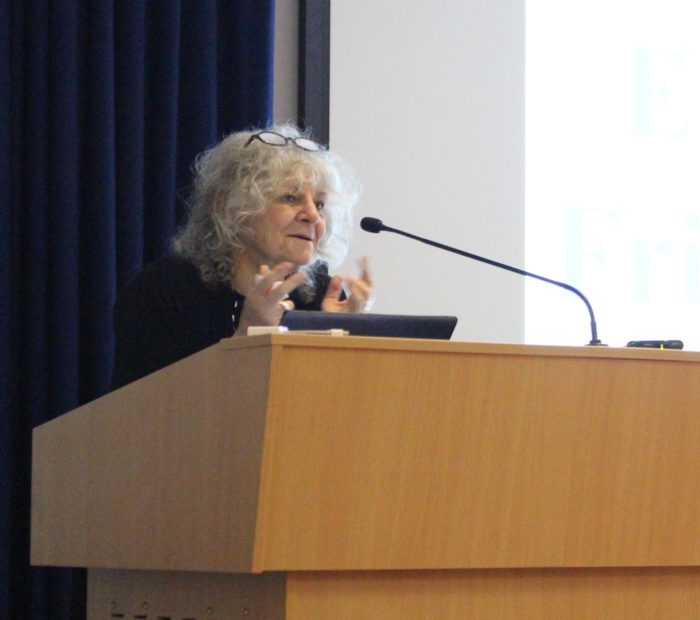
Professor Ada Yonath talks to Garvan scientists
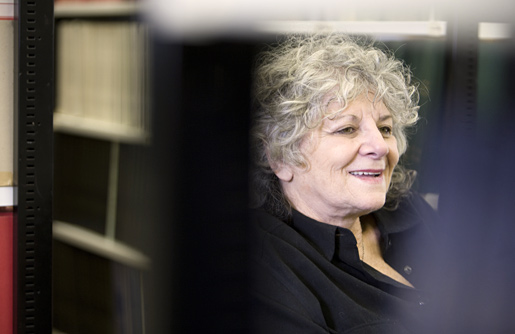
Professor Ada Yonath

Professor Ada Yonath talks to up and coming researchers
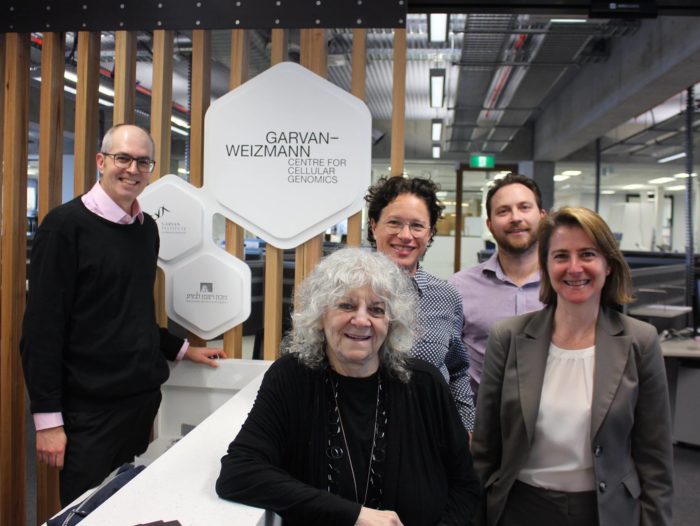
Garvan's Dr Warren Kaplan, Weizmann Australia's Rina Michael, Garvan's Robert Saloman, Professor Ada Yonath and Dr Dorit Samocha-Bonet


